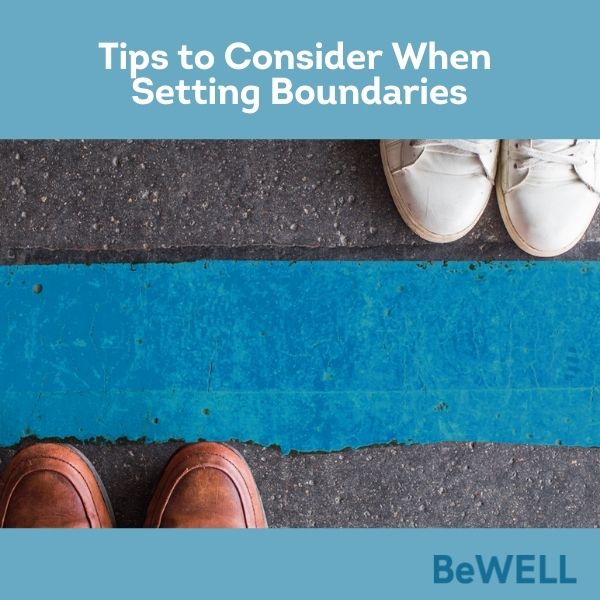Are you struggling with setting healthy boundaries?
You are not alone; because most of us find it difficult or experience shame and guilt when it comes to setting boundaries. We allow people to move in our lives as they see fit. A lack of boundaries create resentment and compassion fatigue. People with no boundaries are often frustrated, and often feel used by others. Your friends and family may not be intentionally using or taking advantage you; they are operating in ways that you have allowed.
Many of us did not grow up in homes where boundaries were discussed or modeled. Often, our families did the opposite of setting and respecting our physical and emotional spaces. if you grew up in a family system or culture that promotes enmeshment, you most likely find it difficult to set healthy boundaries. Enmeshment is described a loss of autonomy due to a blurring of psychological boundaries, or emotional overinvolvement (Nichols & Davis, 2020)
The best way to heal from resentment is better boundaries. Personal boundaries are the limits we set for ourselves within our relationships. A person with healthy boundaries can say “no” when they want to. They are also comfortable opening themselves to intimacy and close relationships. Healthy relationships have healthy boundaries, and those boundaries are often communicated and respected.
Here are some tips to consider when setting Healthy boundaries
- Know your limits: what is acceptable to you, and what is not. Do this before involving yourself with anyone or situation. Knowing your limits will further assist you in setting healthier boundaries. For example, if you know that you are unable to work more than 40 hours weekly, and your supervisor is asking you to work overtime, communicate that.
- Know your values: Your values will determine your limits. Find out what is important to you and protect it. Some of us value our personal time, explore what you value before setting boundaries. If you value your personal time and space, it is appropriate to set a boundary where you ask your family not to volunteer your time without communicating with you.
- Be Clear: Express your needs, desires, and feelings. Set your boundaries without the ambiguity. Instead of saying “I don’t know” while you want to say “NO”, be clear and say “NO.” As stated by Brene Brown “Clear is kind, unclear is unkind.” Be clear about expectation, your needs, and your wants.
- Communicate: We cannot expect others to read our minds. Speak up and communicate your boundaries. It is unfair to hold other accountable to violate boundaries that we did not communicate. We often get upset with others for violating boundaries that we did not communicate, and it is unfair to them.
- Have self-respect: If you always give in to others, ask yourself “am I showing as much respect to myself as I show to others.” Open boundaries might be due to your attempt to be liked by others. Our desires to please others and be liked by others may be the driving force behind your lack of boundaries. When we say ‘NO” to others, we are saying “YES” to ourselves.
- Listen to your emotions: Do not ignore your feelings. Explore your emotions and find the root. If you are noticing feeling of resentment, you may have to revisit your boundaries.
- Consider the long view: Relationships can be transactional, consider that some days you may give more than you take, and other days you may take more than you give. Leave room for grace and compassion. If you are always giving or taking, you may have to reflect on ways in which you can either set healthier boundaries or respect the boundaries of others.
References
Nichols, M., & Davis, S. (2020). The essentials of family therapy. 7th edition. Boston: Allyn & Bacon
Healthy Boundaries Tips (worksheet). Therapist Aid. (n.d.). Retrieved November 1, 2021, from https://www.therapistaid.com/therapy-worksheet/healthy-boundaries-tips.



